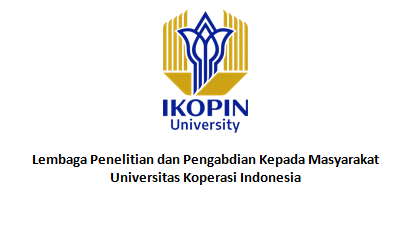Pelatihan Pengembangan Usaha Koperasi bagi Pengurus dan Pengawas Koperasi Primer Tempe Tahu Indonesia (KOPTI) Sleman Yogyakarta
DOI:
https://doi.org/10.32670/ecoopsday.v4i2.3605Keywords:
KOPTI, Business Development, Market Development,Abstract
Koperasi Tahu Tempe Indonesia (KOPTI) is a type of cooperative whose members are producer of tofu and tempeh for the community. So that as a producer cooperative, the efforts carried out by KOPTI are aimed at helping and facilitating the needs of its members to advance their business. One of the KOPTI in Sleman Regency complained about the challenges and obstacles in developing a business, especially in the soybean procurement business and the tempeh house business. Therefore, in Cooperative Education this March, training and guidance on cooperative business development were carried out interactively. In cooperative education, it is discussed that the purpose of business development is to increase efficiency, productivity, competitiveness, income and increase the role of cooperatives in serving their members. Some steps that can be taken are to develop an existing business or add a new business. In overcoming soybean price competition, cooperatives are advised to buy soybeans from importers domiciled in Semarang and if necessary pack and deliver the soybean brands with their own brands modified from existing brands that are first known by tempe and tofu producers, to overcome the fanaticism of producers on a certain brand. Meanwhile, to overcome barriers to marketing premium tempe products produced by KOPTI in Sleman Regency, KOPTI explore cooperation with mini markets or supermarkets and conduct personal selling to upper- middle-class restaurants that provide menus made from tempe and target consumers in high-class housing. On the other hand, to increase member loyalty to the cooperative, it is suggested that cooperatives can carry out membership education for producers of KOPTI members in stages.
Downloads
Published
How to Cite
Issue
Section
License
Copyright (c) 2023 Nanik Risnawati

This work is licensed under a Creative Commons Attribution-NonCommercial-NoDerivatives 4.0 International License.


.png)



 NTER
NTER
